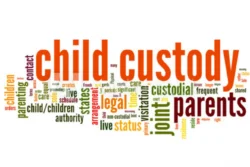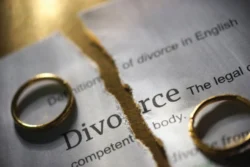When two parents in the state of New Jersey decide to separate, one parent will likely end up paying child support to the other one to help cover the cost of raising the child. There are certain things that are taken into consideration before a court order for a specific amount of child support is determined. Each situation is different no two parents are the same. If you are unsure of how to approach child support negotiations, a New Jersey Child Support Attorney can help answer your questions.
The Number of Children
Before a specific amount is determined, the judge needs to know how many children the couple has. The child support rate will increase if the couple has more than one child together because there are more expenses involved. The ages of the children are often taken into consideration, as well, as children have different needs at different times of their lives.
Income Earned by the Non-Custodial Parent
The judge needs to know how much money the non-custodial parent earns on a monthly basis. The gross income is taken into consideration, along with child support payments that are made for other children. For example, if the non-custodial parent has other children from a previous relationship, he or she may currently pay child support to those children, too. The goal is to come up with an amount that is reasonable enough for the children to receive without causing the non-custodial parent to be left penniless.
Income Earned by the Custodial Parent
Not only is the income of the non-custodial parent reviewed, but so is the income earned by the custodial parent. Even if the custodial parent is earning a decent wage, he or she is still entitled to receive some child support because the money is meant to help with child-related expenses. However, if the custodial parent makes significantly more than the non-custodial parent, the child support payments may be lowered.
Additional Child Expenses
Several other expenses are considered when a judge is trying to determine how much money the non-custodial parent should pay for child support. For example, the non-custodial parent may currently cover the insurance for the children simply because it is offered to the children from his or her job. The non-custodial parent might even already pay for the cost of sending the children to daycare so that both parents can work.
In some cases, the custodial parent is the one who is paying for everything. It becomes a bit much for the custodial parent to handle on his or her own, which is why the custodial parent may be seeking child support to begin with. The judge will consider all of this information to determine how much money the custodial parent should receive in child support payments each month.
Child support payments are determined after several factors are taken into consideration, including the earnings of both the non-custodial parent and custodial parent, the amount of child paid out to children from a previous relationship, alimony that is paid out to a former partner, the cost of health care coverage, and even the cost of any daycare expenses. After carefully reviewing all the important information, a judge sets child support at a specific amount and will expect the non-custodial parent to make payments on time to the custodial parent.
Separated from your former partner and in need of help when it comes to providing care for the children? You may want to request child support payments. If you are not sure how to get started, request a consultation with an experienced New Jersey child support attorney from Giro Law at GiroLaw.com to get professional legal help.





